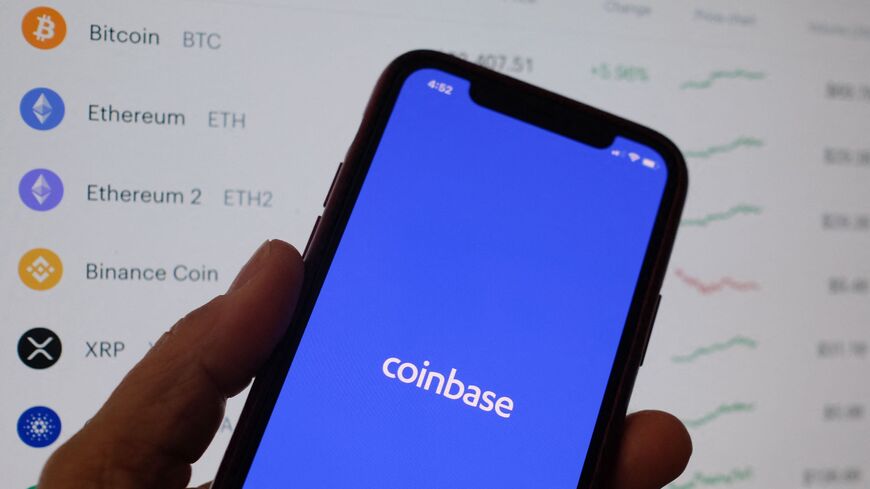DUBAI — Mubadala-backed Hub71, a technology startup ecosystem, is believed to have granted access to leading US cryptocurrency exchange Coinbase to set up an international hub in the United Arab Emirates (UAE) capital, Abu Dhabi, based on a tweet by Mubadala Capital’s head of ventures, Ibrahim Ajami, on Sunday.
At a Dubai-based tech event May 8, Coinbase CEO Brian Armstrong said that the UAE could serve as a hub for parts of the Middle East, North Africa and Asia.
Rudy Shoushany, founder and CEO of digital transformation talk show DxTalks, said the culmination of Coinbase’s recent UAE activity, eye on Hub71 investment and Ajami's tweet all indicate a deal has likely been finalized between the two entities.
“Knowing all of that including [Ajami's] tweet seem to confirm that Coinbase is making a base or a regional headquarter there,” he said, although no official statement has been made by Hub71 or Coinbase.
What happened: Mubadala Capital’s head of ventures, Ibrahim Ajami, welcomed Coinbase “to Hub71 and Abu Dhabi” in a tweet on Sunday. Mubadala is Abu Dhabi's second-largest sovereign wealth fund.
Hub71 told Al-Monitor that Coinbase visited its Abu Dhabi headquarters last week as part of its UAE tour and discussed the digital assets industry in their respective regions. Hub71 did not comment on whether Coinbase will practice or open an office with them in the Emirate capital.
Welcome @coinbase to Hub71 and Abu Dhabi @hub71ad
— Ibrahim Ajami (@IbrahimAjami) May 14, 2023
This comes after a Coinbase executive team that included Armstrong announced May 7 that it would visit with local partners and regulators, among others, according to a blog post by the company.
The post stated that the American cryptocurrency exchange scheduled discussions with the Abu Dhabi Global Market and Dubai’s Virtual Assets Regulatory Authority (VARA) about setting up in the UAE.
Coinbase said it was interested in the UAE due to its ranking as the second-highest remittance sender and sixth-largest cross-border wealth management center globally. The UAE and Saudi Arabia hold 70% of Gulf Cooperation Council countries’ wealth, the blog post continued.
Armstrong spoke at the Dubai Fintech Summit (May 8-9), where he called the Middle East “an exciting region for technology to develop.” He said that his company had invested in regional crypto companies such as Bahrain-based cryptocurrency brokerage firm Rain.
Why it matters: Coinbase had a standoff with the US Securities and Exchange Commission (SEC) earlier this month and said crypto companies were going overseas to establish hubs seeking more supportive regulatory frameworks.
"We would like to see the US take a similar approach instead of regulation by enforcement, which has led to a disappointing trend for crypto development in the US," said the crypto exchange, according to Reuters.
Armstrong had warned that crypto firms would build offshore havens unless the United States and Britain make their rules much clearer.
Shoushany said crypto companies with US operations face the constant fear of being shut down due to undefined guidelines that give the government carte blanche to operate.
“Gary Gensler, head of the SEC, can send a notice of violation of an unknown regulation — one that doesn't even exist — that could force a company to shut down,” he said, adding that relying on this system is a losing strategy.
The UAE, on the other hand, launched regulatory bodies such as VARA last year along with the Dubai Metaverse Strategy to be at the forefront of emerging Web3 technology, said Shoushany.
In Abu Dhabi, Hub71 launched a $2 billion initiative in February to advance decentralized Web3 ecosystems including blockchain and metaverse applications. The initiative provides Web3 startups with a progressive regulatory environment and access to government and investment partners, which include Binance Lab’s $500 million investment fund.
“Coinbase might tap into this $2 billion investment or even contribute to it with its move to the UAE,” said Shoushany, explaining, however, that at the moment no intentions have been shared publicly.
Such incentives, less restrictive regulation and tax structures that need about four to five years to develop are attractive to companies like Coinbase and allow them to grow rather than stifling them, he added.
Shoushany said Abu Dhabi is not issuing full licenses to any crypto company at this time, as it seeks to cooperate with companies to determine what regulations and restrictions should be put in place to drive the industry forward and without massive penalties.
Background: The 2022 cryptocurrency bubble crash hurt the UAE crypto market. In early May, VARA announced that it had reprimanded crypto company Open Exchange in April for unregulated activity.
Before that, in February, cryptocurrency exchange Kraken announced it was closing its Abu Dhabi Office. Also in early November 2022, Bahamas-based exchange FTX filed for bankruptcy after receiving a Dubai license in March of that year and caused ripples globally after the public debacle.
Later that month, Binance CEO Changpeng Zhao stood in support of crypto, reassuring attendees at Abu Dhabi Finance Week that it is the future.
Nouriel Roubini, chief economist at Atlas Capital, took to the event's main stage after Zhao and berated the CEO, calling for him to have his license revoked and be kicked out of the UAE for his role in FTX’s demise and claimed corrupt business practices.
Last year, the US Justice Department investigated Binance for possible violations of money laundering rules, and in March, the US Commodity Futures Trading Commission sued Binance for operating an alleged illegal exchange and fake compliance program.
Know More: The UAE’s cryptocurrency ambitions will continue despite the chaotic collapse of FTX — although FTX's crash has potentially imperiled the very future of an already volatile industry. This comes as the Middle East and North Africa was the world’s fastest-growing crypto market in 2022, with the UAE having moved aggressively to attract crypto companies to the country.


f0eb.jpg)





